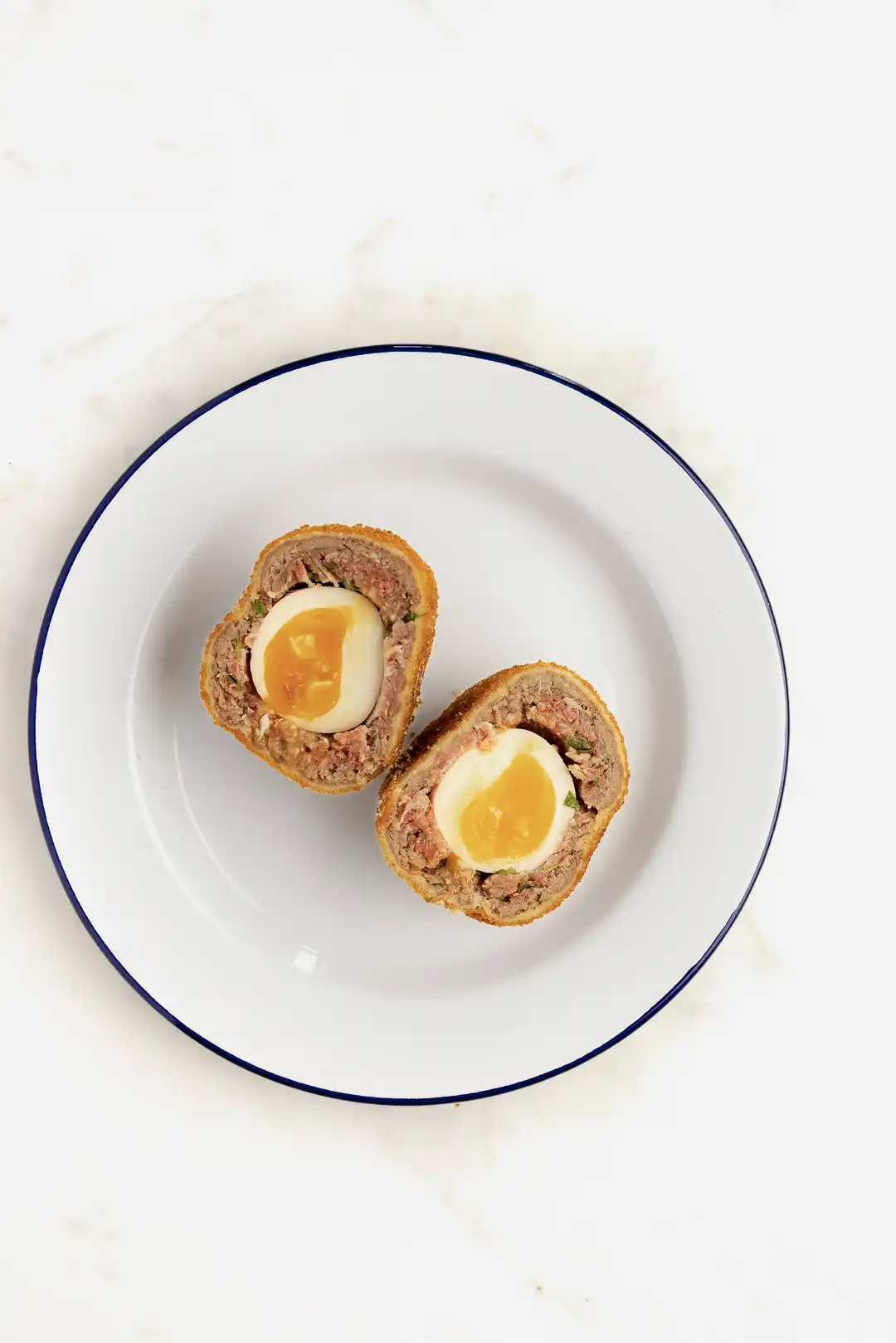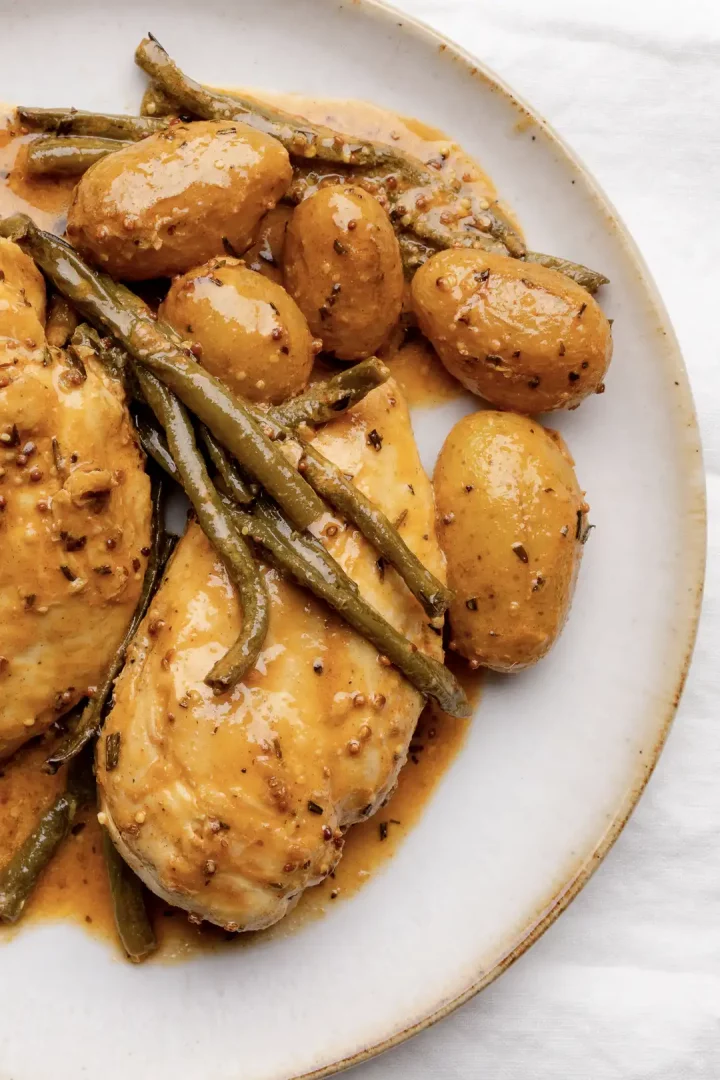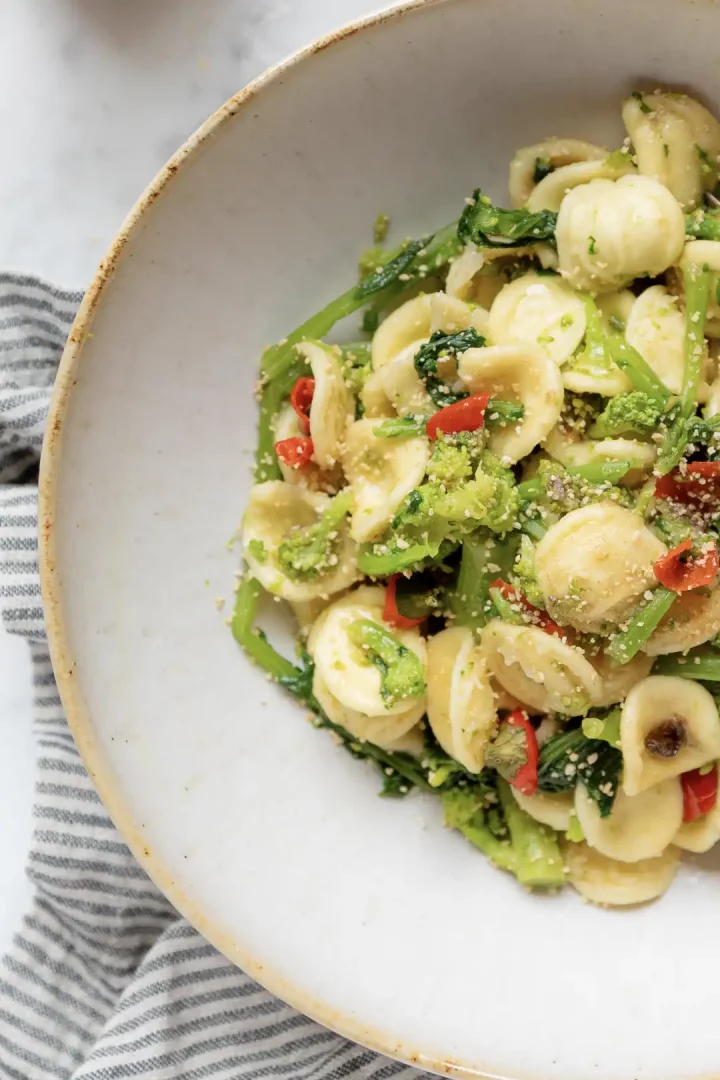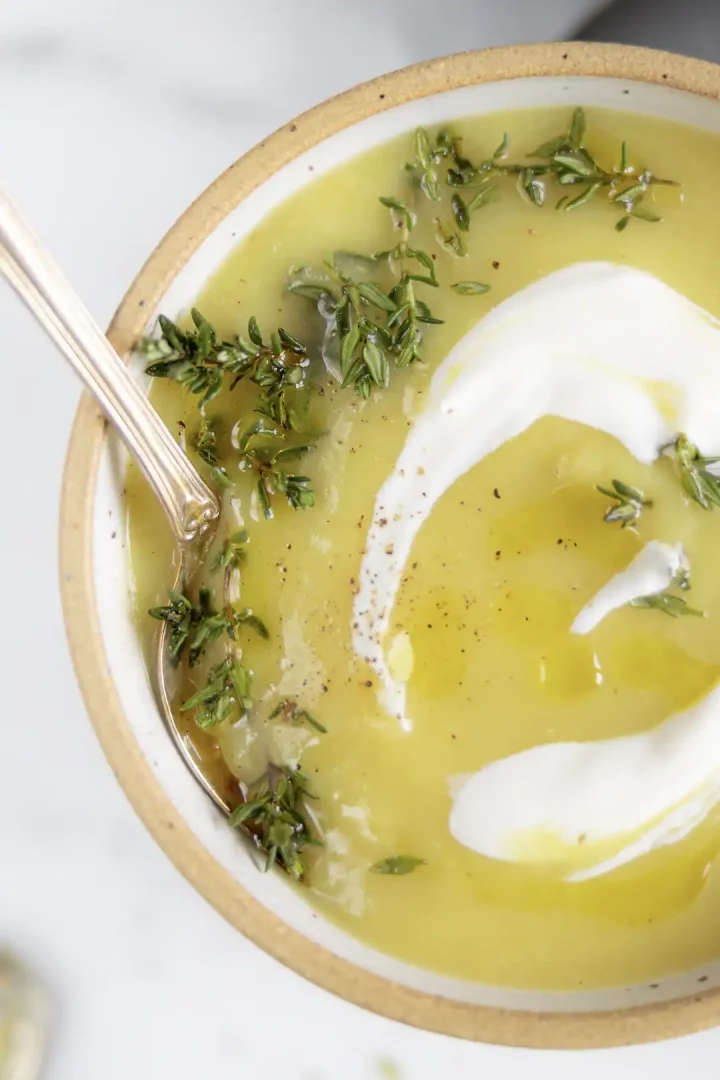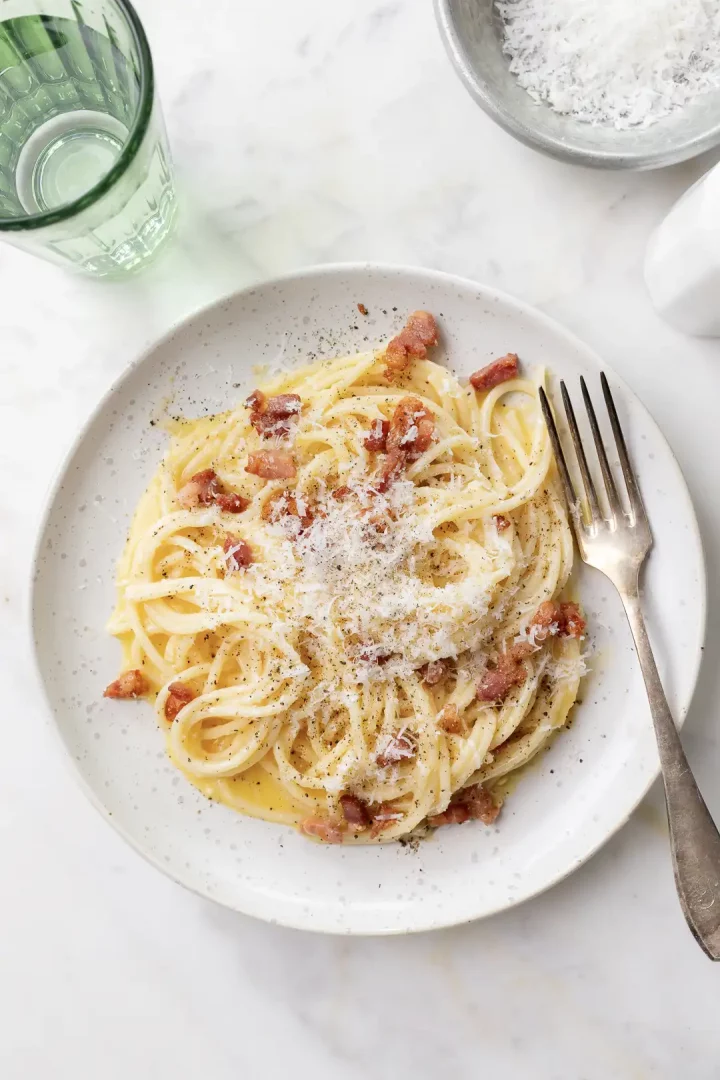Scotch Eggs are a delicious British culinary specialty that combines simple ingredients and traditional preparation techniques to create an irresistible dish. They consist of hard-boiled eggs wrapped in a generous layer of minced meat, breaded, and fried until they achieve a golden and crispy crust. The crunchy and savory exterior contrasts perfectly with the soft and succulent filling, making them simply delightful.
The origins of this recipe date back to the 18th century when they were created by the famous London department store Fortnum & Mason. Initially conceived as a practical snack for travelers, they quickly became popular. Today, Scotch Eggs are a classic of British cuisine, often found in pubs, cafes, and picnics.
Preparing Scotch Eggs requires a certain level of skill and attention to detail. The eggs are first boiled to a firm yet still soft consistency in the center. They are then wrapped in an even layer of minced meat, which can be seasoned with herbs and spices to add more flavor.
Modern variations of Scotch Eggs are numerous and creative, reflecting contemporary culinary trends. You can find versions with turkey, lamb, or even vegetarian options that use ingredients like legumes or cheese instead of meat. Additionally, some recipes include spices and special seasonings to give this traditional dish an international twist.
Served hot or cold, Scotch Eggs are perfect for any occasion. They are often accompanied by sauces like mustard, mayonnaise, or chutney, which further enhance their flavor.
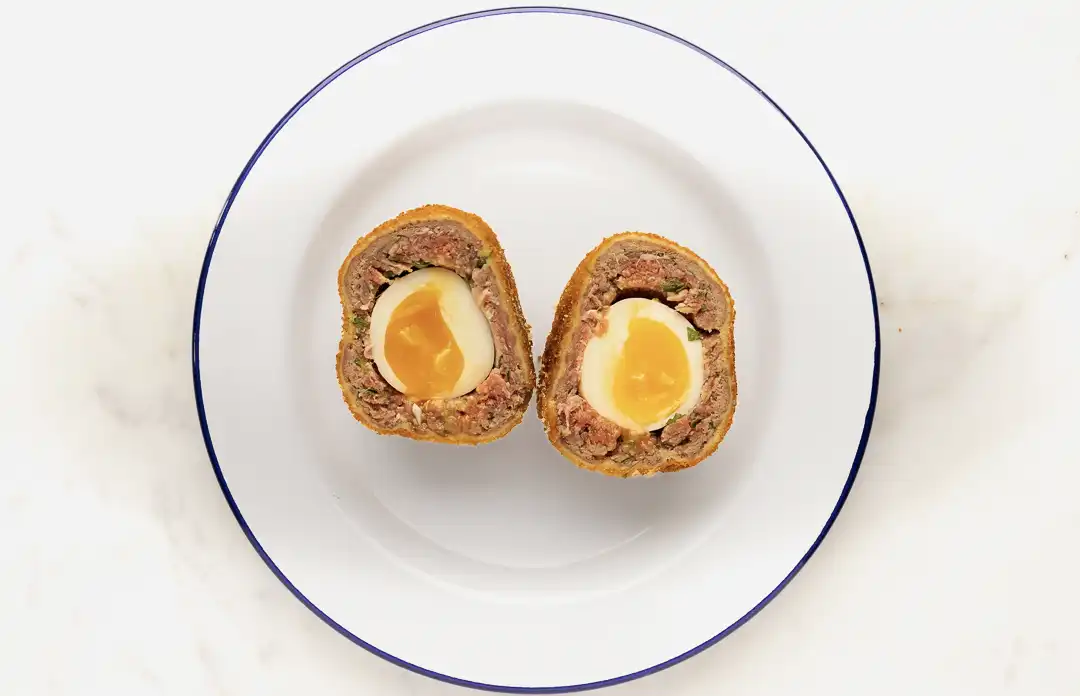
Tips and Tricks
- Cook the eggs in boiling water for 6 minutes and then cool them immediately. Cooking them longer will make the yolk firm rather than creamy.
- Various types of ground meat can be used, from sausage meat to turkey.
- It’s important that the meat you use is always at room temperature; otherwise, it will be difficult to shape the spheres.
- Always check the oil temperature with a kitchen thermometer. If the oil isn’t hot enough, the Scotch Eggs will absorb too much oil.
- Don’t use olive oil, as it imparts too strong a flavor and is much more expensive.
How to Store
To store scotch eggs properly, it is best to refrigerate them promptly. Once the scotch eggs have cooled down to room temperature, place them in an airtight container or wrap them tightly with plastic wrap before storing in the refrigerator. Scotch eggs can be stored in the refrigerator for up to 3-4 days. You can enjoy them cold straight from the fridge or reheat them by lightly frying or baking until heated through. Proper storage helps maintain the freshness and flavor for a longer period of time.
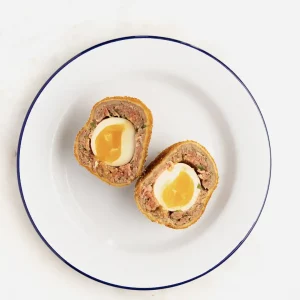
Scotch Eggs
Ingredients
- 4 eggs
- 1 lb minced beef
- 1 bunch parsley
- Salt and Pepper
For breeding
- 100 gr plain flour
- 2 eggs
- 1 tsp tabasco sauce
- 200 gr breadcrumbs or panko
- 5 gr grated nutmeg
- 1 l Oil (peanut or sunflower) for frying
- Salt and Pepper
Instructions
Cook the eggs
- Boil the eggs in water for exactly 6 minutes.
- Cool the eggs immediately in cold water.
Prepare the meat
- Finely chop a bunch of parsley.
- In a large bowl, mix the parsley with the minced beef.
- Add salt and pepper to taste.
- Mix well with your hands or a spoon.
- Peel the eggs and wrap them in the minced beef, forming an even sphere.
- Let the spheres rest in the refrigerator for 10-15 minutes.
Bread the Scotch Eggs
- Beat the eggs and add salt, pepper, nutmeg, and Tabasco.
- Flour the Scotch Eggs.
- Dip the Scotch Eggs in the egg wash.
- Coat the Scotch Eggs in breadcrumbs.
Fry
- Heat the peanut oil to 375℉ (180°C).
- Fry the Scotch Eggs until they are well golden.
- Enjoy your meal!
